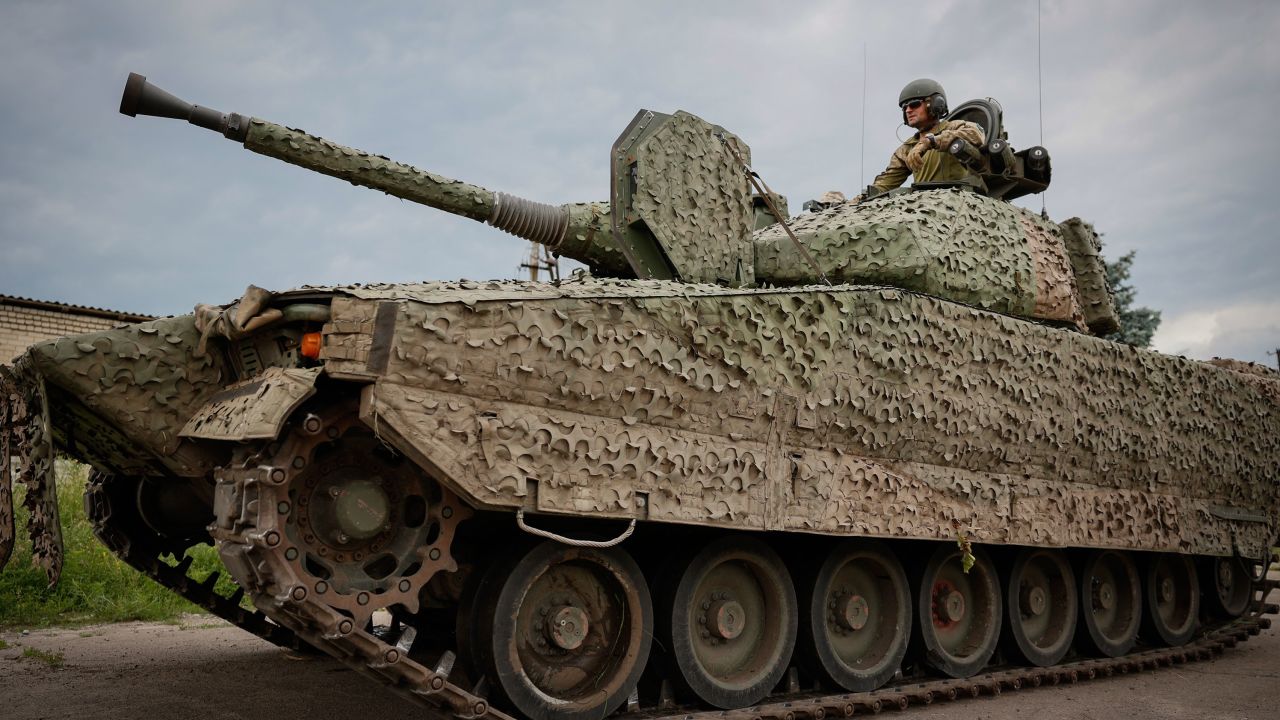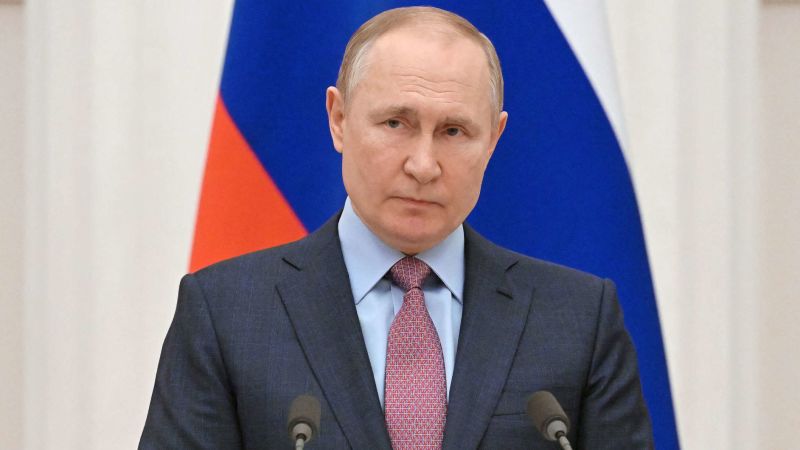Kyiv
CNN
—
Seismic shifts in Moscow must surely spell similar earthquakes along the front lines in Ukraine. But as of Monday, that’s yet to happen.
Ukraine’s forces have announced slight changes along the southern front during the weekend and more sustained progress around the largely symbolic city of Bakhmut – where thousands of Wagner fighters likely died over the winter.
On Monday morning, Deputy Defense Minister Hanna Mailar said Ukrainian troops had retaken Rivnopil in Donetsk region, which might suggest greater progress in the south. But there has been no Russian collapse, despite that appearing a major possibility in Moscow during a large part of Saturday, as mutinous Wagner forces threatened to march on the Russian capital.
Disruption to Russia’s presence around Bakhmut is a more likely outcome from the weekend’s turmoil, where some Wagner fighters may retain a presence but where Ukraine has already been advancing.
Separately, Russian state media reported that 3,000 Chechen fighters had been moved to Moscow to assist in its defense, and it is likely that at least one unit heralded from the hotly contested town of Mariinka. Chechen fighters are often thought to stay back from the very front line, but their absence even in the reserve will be felt.
There will undoubtedly have been some changes to Russia’s military positioning as a result of Wagner’s failed insurrection.
The group appears to have prepared their rebellion for some time and the units used will hence not have been suddenly withdrawn from the trenches last week. But the Russian military may have panicked at seeing mercenaries advance on Moscow and sent help.
This all provides opportunities that Russia’s enemies must seize carefully.
Ukraine and its NATO allies will urgently be trying to assess what and where they are, and whether they provide a material advantage to their counteroffensive. But this is not something you would seek to rush or get wrong.
The sudden application of a bulk of Ukraine’s forces to exploit Russian weaknesses is something Kyiv will doubtless have been patiently waiting for and weighing the merits of for weeks.
Ukrainian leaders won’t want to rush into their own mistake just when Russia is making a lot of its own. It also takes time to relocate hundreds or thousands of soldiers, and perhaps even longer to soften the ground ahead for an assault.
But the weekend’s events have left an indelible mark on the Kremlin’s chances of success in the war. And there are three different ways this can assist Ukraine.
Firstly, there must have been a radical impact on Russian military morale.
Troops in the trenches are often denied access to smartphones to not betray their locations or other sensitive data to Ukrainian spies. But slowly the news of the failed insurrection will filter down. And it will be a shock that the most prominent military figure in Russia, perhaps the only one with the temerity to rail publicly against the Russian top brass’s conduct of the war and supply shortages across the military, took up arms to solve the situation.
Secondly, there is the visible weakness of the commander in chief.
President Vladimir Putin fell silent as the insurrection began; then he declared Wagner chief Yevgeny Prigozhin “scum” using “terrorist methods” who must face “inevitable punishment”; then his spokesman announced a deal in which Prigozhin would vanish to Belarus and everything would be forgiven.
Putin – as of late afternoon in Moscow on Monday – had yet to be seen in public since this apparent deal was struck, with the Kremlin bizarrely releasing a pre-recorded video of the president discussing a youth forum. It is a picture of vacillation and absence, and these are not things a wartime leader can project. The weekend has damaged this leader’s ability to lead, and that will help Kyiv, even if it takes months to manifest itself in battlefield chaos.
And finally, Ukraine’s counteroffensive has always been about pushing Russia to make difficult choices on the battlefield – to grind Russian defenses down until a concerted Ukrainian push using its reserves can break through.
Would this happen in Bakhmut, or the long southern front, or the further reaches of the western or northern frontlines?
Given the anecdotal reports of Putin’s micromanagement of this war, it is likely the larger calls about where to hold and where to run would have involved him, or at the very least his top brass. They are all now caught in the greatest internal crisis Russia has seen since the fall of the Soviet Union. So their already bad decision making will likely get worse.

This is the moment in which Ukraine will likely reap the most benefits, in forcing a strategic error from Moscow at a time when they are – to say the least – distracted. It is also possible that Kyiv and its allies are still assessing the weekend and are anxious not to move until they have a clearer picture of the fallout.
Is Putin’s position going to worsen yet still? Might an earthquake on the battlefield inadvertently rally Moscow’s elite around him, to stave of an existential defeat for Russia as a nation in Ukraine? The risk of unintended consequences are very real during what Putin called “turmoil.” He invoked the ghost of Russia’s withdrawal from the First Word War in 1917, as revolutionary forces would swallow Russia for almost a century.
Napoleon said never interrupt your enemy when they are making a mistake. Moscow’s mistakes have been so plentiful over the past months, at some point Ukraine will likely seize the initiative. The impact of that could create a crisis for Russia that would make the weekend seem petty.

